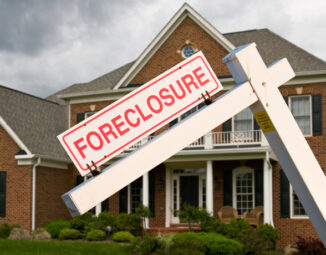Recent Pennsylvania Superior Court Decision Reiterates a Commercial Landlord’s Obligations to Satisfy Conditions Precedent and Timely Bring Claims for “Additional Rent”
A recent Pennsylvania Superior Court decision, although non-precedential, reaffirms the need for landlords to satisfy any conditions precedent prior to bringing a collection claim and to assert such claim within four (4) years of non-payment.
In Tsung Tsin Ass’n v. Luen Fong Produce, Inc., 2019 Pa. Super. Unpub. LEXIS 1301 (April 9, 2019), the Pennsylvania Superior Court held that the statute of limitations prevented a commercial landlord from recovering damages for unpaid additional rent prior to June 6, 2011. By way of brief background, the parties’ relationship began in 1995, when the landlord agreed to lease the first floor of its building to the tenant, a produce wholesaler. In 2003, the parties entered into a new lease. In 2009, the parties entered into an addendum, extending the term of the lease to June 30, 2019. While the tenant paid its monthly base rent throughout the entirety of its tenancy, a dispute arose regarding the tenant’s purported failure to pay additional rent (which, according to the landlord, consisted of the tenant’s proportionate share of any increases in property taxes, use and occupancy taxes, water, sewage and gas).
On June 6, 2015, the landlord sued the tenant in the Philadelphia Municipal Court for nonpayment of the additional rent over the course of the proceeding 12 years. Following the landlord’s victory, the tenant appealed to the Philadelphia Court of Common Pleas. In its complaint filed in the court of common pleas, the landlord sought all outstanding additional rent owed for the prior 12 years. In defense, the tenant claimed that the landlord’s action was barred by the applicable statute of limitations. Specifically, the tenant argued that the landlord’s claim expired in June of 2007, four years following the first time in which the tenant failed to remit additional rent.
A jury trial was held in May of 2016, during which the landlord presented evidence of the outstanding additional rent. Prior to submission to the jury, the trial court limited the landlord’s damages as a matter of law based on the statute of limitations and held that the landlord could only seek additional rents from June 6, 2011 through the present. The trial court referred to this as the “four-year-look-back” period. The jury found that the tenant breached the lease and awarded the landlord damages in excess of $38,000. Both parties appealed. On appeal, the tenant reiterated its earlier argument – that the landlord’s action was barred by failing to file on or before June of 2007. In response, the landlord claimed that, under a continuing breach theory, the statute of limitations period did not apply because the tenant committed a series of continual breaches by failing to pay the additional rent each month over the course of 12 years.
On appeal, the Superior Court rejected the arguments of the parties and agreed with the trial court’s rationale. Specifically, the Superior Court held that the landlord was not
permitted to recover additional rent due prior to June 6, 2011 (i.e., four years before the landlord initiated the action in the Municipal Court). In doing so, the Superior Court looked to Pennsylvania’s Landlord and Tenant Act of 1951, 68 P.S. §251.101, which requires “actions to collect rent [to] proceed under the common law of contracts” and 42 Pa C.S. §5525, which provides for a four-year statute of limitations for contract actions. In rejecting the tenant’s argument that the landlord’s claim was barred, the Superior Court reasoned that such a result “would create the absurd and unjust result that the landlord could never collect any additional rent — past, present, or future” and that the Legislature did not intend “for long-term tenants to occupy premises rent-free, when a landlord waits more than four years into a decade-long lease to sue.”
In determining what amounts the landlord could recover, the Superior Court looked to the terms of the written lease governed. For example, the Superior Court determined that, under paragraph 6 of the parties’ lease, the tenant agreed to pay any additional real estate taxes on or before July 1 of each year. Thus, “the tenant’s failure to pay the 2003-04 real estate tax on July 1, 2004 was one breach of paragraph 6. Failure to pay the 2004-05 real estate tax on July 1, 2005 was another, and so on each year. Thus, failure to pay the 2010-11 real estate tax on July 1, 2011 was a new breach.” As such, while the landlord was entitled to recover damages from the tenant based on the tenant’s failure to pay the 2010-2011 real estate taxes (and years subsequent), the landlord was barred from collecting any amounts due for the prior years.
On appeal, the tenant also claimed that the landlord failed to establish a prima facie case with respect to certain of the additional rent items. Although the Superior Court held that the landlord established its breach of contract claim with respect to unpaid real estate taxes, it agreed with the tenant and overturned the trial court’s decision with respect to the other items of damages on the basis that the landlord failed to satisfy the condition precedent, there was evidence that the tenant remitted the correct amount due and/or the lease did not require the tenant to remit any payment.
While the result of this case should not come as a surprise, the lesson learned is an important one. First, often times, commercial landlords fail to abide by certain conditions
precedent when it comes to a tenant’s additional rent obligations, such as failing to timely submit to the tenant an invoice calculating and itemizing any increases in operating costs each year. For example, sometimes the cost associated with calculating any increases of additional rent and processing invoices to each tenant is greater than the amount of additional rent. However, this recent decision reaffirms that a landlord’s failure to abide by any condition precedent may prohibit (or limit) its ability to collect. Additionally, commercial landlords also often overlook the additional rent obligations of their tenants. For example, commercial landlords are often willing to accept partial payment of additional rent as opposed to no payment at all. While these overlooked amounts may be de minimus at first, overtime and in the course of a multi-year contract, these amounts easily add up to tens of thousands of dollars. However, waiting until the outstanding amounts due add up, or until the tenant commits a more significant breach of the lease, comes with a risk of being unable to collect. As such, it is crucial that commercial landlords comply with all conditions precedent prior to demanding additional rent and act promptly in their collection efforts.
Should you have any questions or concerns regarding the impact of this recent Superior Court decision, or for more information regarding the duties and obligations of parties to a commercial lease, please contact Samantha Koopman at samantha.koopman@obermayer.com.





